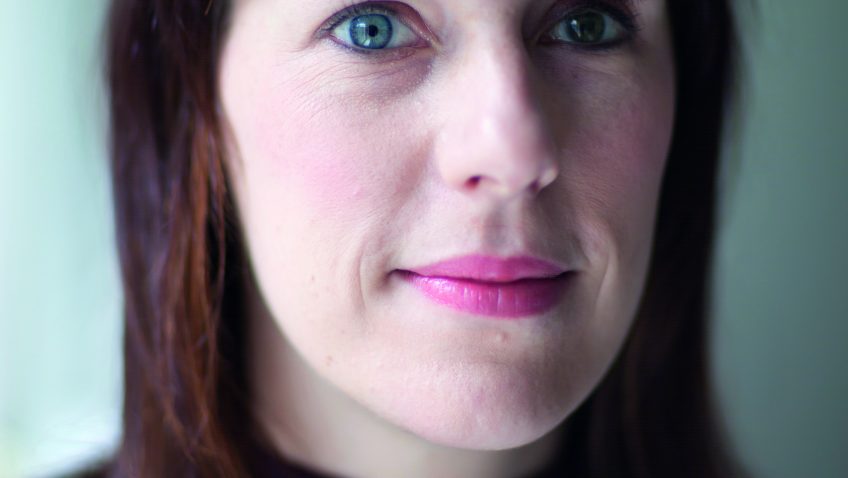Ex-Windesheim professor Bovens chair broad partnership
Thirty organisations have designed an action plan: the ministry is willing to listen. Bovens: ‘These psychological problems ask for specialized help’.
The research by Jolien Dopmeijer, from which showed that a quarter of the students struggles with burnout problems and one out of seven students struggle with anxiety and depression issues, has stirred things up quite a bit. The researcher (see picture) was surprised by a heavy mediastorm, she tells: ‘Primarily recognition and positive responses. Many students appreciate that the theme is being picked up and there are students that offer their help.’ Dopmeijer will be more low-profile in the near future; the completion of her PhD has priority. A Partnership (which it is called for now) has been established consisting of thirty organisations that will come up with proposals. The chairman of this Partnership is the ex-Windesheim professor addiction care Rob Bovens, currently associated with the University of Tilburg. On World Health Day (7 April) they presented an action plan Student-Health.
Bovens emphasises that it should not become a ‘conversation club’. ‘The ministry of OC&W (Education, Culture and Science) has pointed out that, with the action plan, one has ‘knocked on the door’, that this door ‘is open’ and that a procedure is being prepared which should be done by the summer. Our action plan forms a blueprint for this.’ It is not clear whether the Partnership will execute this plan, or another organisation will be established.
Pim Cuijpers, psychologist at VU university of Amsterdam, doubted the numbers presented by Dopmeijer in the Volkskrant newspaper of 7 April. Bovens: ‘He points out that there is a lot of comments from researches that are done in this field, as these always concern self-report, it is always the question who participates in these kinds of researches and because the definitions of, for example, burnout are subject to all kinds of discussions and changes.
But there has to be done something to solve this problem. Whether it is 20 or 25 percent doesn’t matter then.’
Many responses had an undertone like: they shouldn’t be nagging like that but just put their phone aside. Bovens: ‘Just like how people are easily tended to speak of infirmity of purpose with alcohol problems, without presenting contextual factors like peer pressure and advertising, genetic factors or changing brain structures as an explanation. People forget that the youth is also the product of their upbringing and a society that develops rapidly. The fact that students are still very much looking for their own identity and are insecure during this phase isn’t weird, right? They are almost like people!’
Bovens is aware of the fact that exactly contextual factors cause us to not expect too much of interventions and advices. ‘Just like grownups shouldn’t expect too many miracles from alcohol prevention with the youth in a society that only wants to show the nice sides of alcohol, that uses alcohol as a bait to keep the inner city lively and lets us know through advertising that amusement is actually unthinkable without alcohol. You don’t change a product of an often too tolerant and an unclear upbringing and of a demanding (performance-focused) environment isn’t that easy. Specialized help should very much be available regarding these issues. ’
